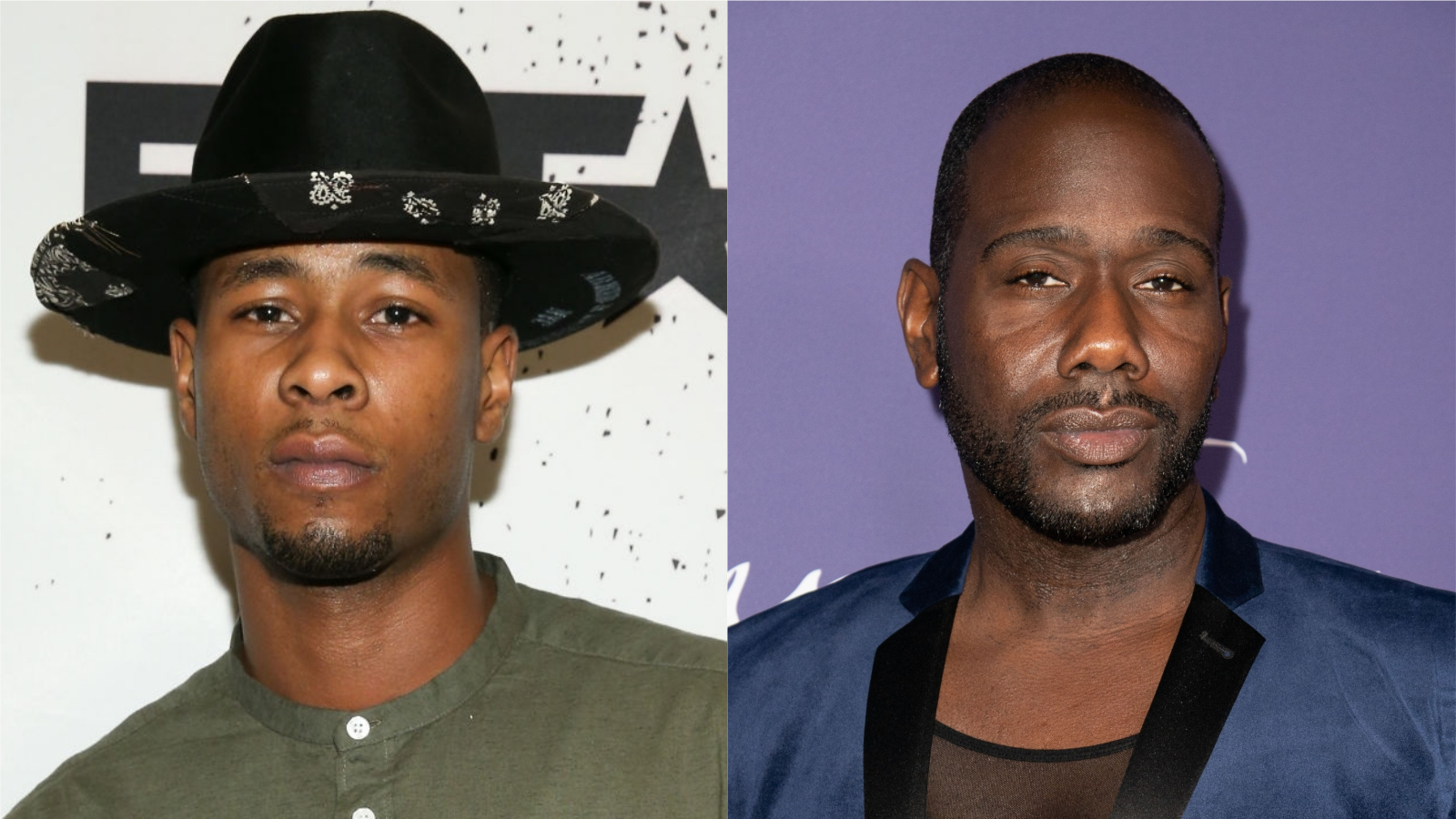Cisgender heterosexual folks aren't hard pressed to find representations of their romances on mainstream media. For queer people of color, it's a different ballpark.
A GLAAD study found that in 2018, there were only 45 LGBTQ+ characters of color among all mainstream film releases. Among those characters, only 10 of them were Black.
P-Valley, the acclaimed Starz drama centered on The Pynk, a fictional strip club in Chucalissa, Mississippi centers around the personal lives of a group of exotic dancers. But it was the romance between up-and-coming rapper, Lil Murda, played by J. Alphonse Nicholson, who courted the club's vivacious, non-binary owner, Uncle Clifford, played by Nicco Annan that offered viewers a pleasantly layered surprise.
Uncle Clifford supporting Lil Murda at the Pynk ???????????????????? #PValley
pic.twitter.com/z6aUZ1XIKY— LaDondric (@LaDondric) September 7, 2020
We were first introduced to Lil Murda, an entertainer within a bubble of popularity from a conservative southern town, as he sought to flex his money in The Pynk. Not long after, he'd be courting Uncle Clifford with impressive displays of affection and dates — including a night in with Uncle Clifford's grandmother, played by the legendary Loretta Devine and a creative car date in the woods — which sounds more romantic than it reads.
One couldn't help but be giddy with excitement, by the budding courtship. It's rare to see plots like this because the Black love stories that feature those of us who fall on the LGBTQ+ spectrum aren't usually a focal point if they appear in mainstream television and film at all. But in the first few episodes of the show's freshman season, we were able to witness a love story blossom into a true declaration of what it means to be unapologetic about who you love.
But it didn't do so without also addressing the frightening realities that can come with queer dating.
When the fictional rapper urges Uncle Clifford to go out on a date with him, the latter takes her lover down a brief but painful stroll down Chucalissa's memory lane by sharing the deadly hate-filled moment two gay and lesbian couples faced on a night out on the town.
Uncle Clifford standing up for herself like the queen that she is should not only be applauded for emotionally safeguarding her heart but maybe physically as well since this relationship could've ended up with her being killed or harmed by her lover as we see with so many slain trans women. Selena Reyes-Hernandez, killed by a teenager upon discovery that her anatomy wouldn't align with his expectations, is a prime example of the ugly reality facing trans women, particularly those of color.
Whether or not Lil Murda was fetishizing Uncle Clifford can be left up to date but the fact of the matter is that he let her down. For much of the season, viewers saw him offer her delusions of grandeur just to leave her out to dry for a career around his subpar music.
We’ve made strides in bringing authentic, Black love stories to the television screen, those same stories haven’t always encompassed love that falls on the LGBTQ+ spectrum. We’ve seen iconic fictional Black couples such as Whitley and Dwayne from A Different World or Randall and Beth from This Is Us but rarely have we seen Black love like that of Uncle Clifford and Lil Murda. We’ve seen shows like Noah’s Arc, that paved the way in showcasing the beauty that occurs when Black, queer love is centered in mainstream television but outside of that, not so much. P-Valley is leading by example in not only showcasing Black, queer love but being bold enough to give the public a glimpse into its grim side.

